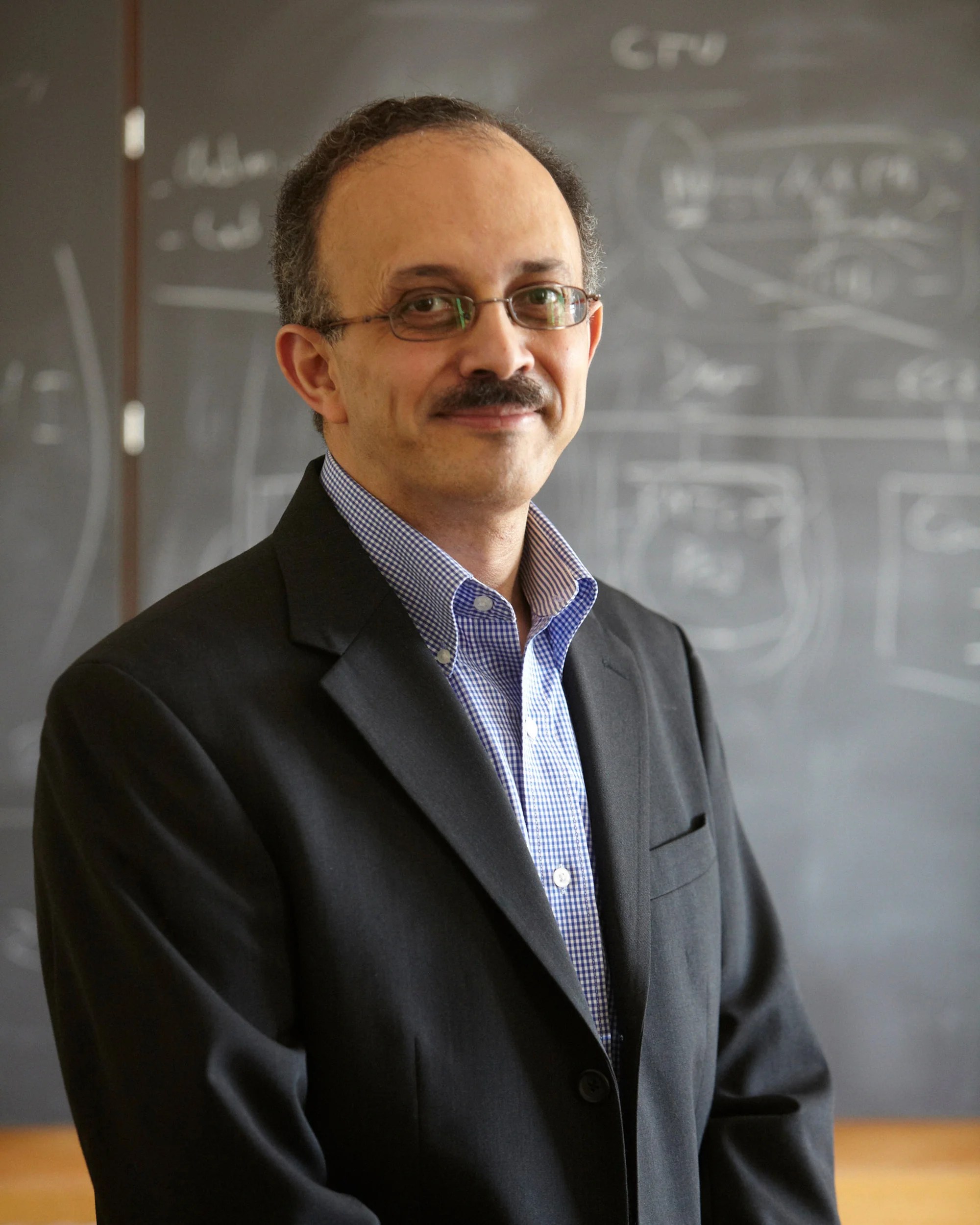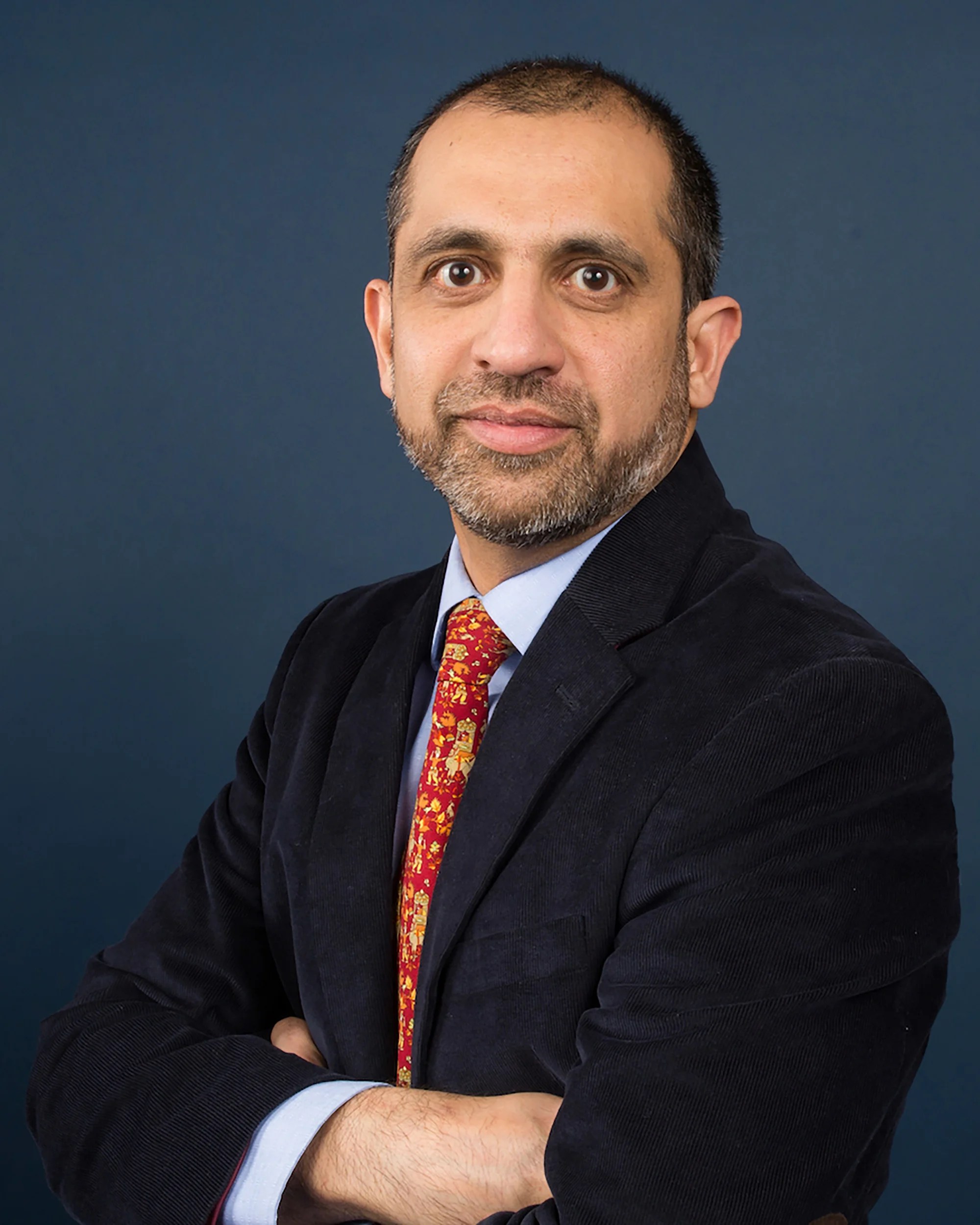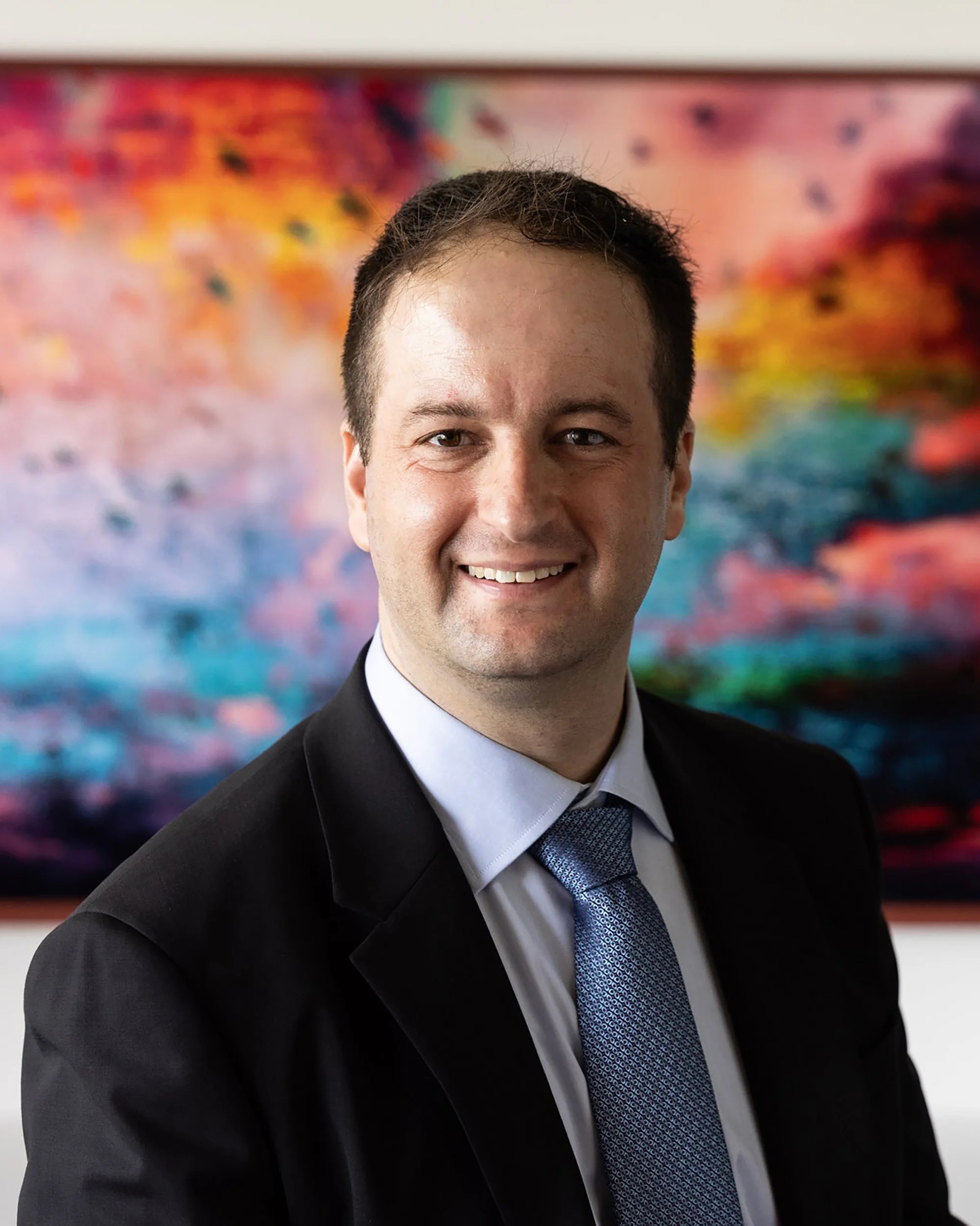The 2 presidential job forces targeted on combating anti-Muslim, anti-Arab, and anti-Palestinian bias and antisemitism have delivered their preliminary suggestions to Harvard’s interim president, Alan M. Garber. The suggestions give attention to 13 thematic areas the place the College can act quickly.
In a message sharing the preliminary suggestions with the Harvard neighborhood, Garber wrote: “We should strengthen our ties with a sustained dedication to partaking one another with tact, decency, and compassion. Our studying can’t be restricted to purely tutorial pursuits if we hope to satisfy our obligations to at least one one other and to the establishment that’s our mental residence.”
“I’m profoundly grateful to [the co-chairs of the task forces] Ali Asani, Jared Ellias, Wafaie Fawzi, Asim Ijaz Khwaja, and Derek Penslar for his or her candor, thoughtfulness, and, most necessary, their optimism. The work forward of us would require a concerted effort. As each job forces work towards remaining suggestions, their preliminary suggestions supply a path ahead. We are going to start detailed evaluation and implementation of the shorter-term suggestions over the summer season. These which can be longer-term will likely be developed, refined, and applied in the end.”
The Gazette sat down with the 5 co-chairs of the duty forces to be taught extra in regards to the suggestions and what the co-chairs discovered in a mixed 85 listening classes with near 900 members of the Harvard neighborhood this spring.
Every co-chair spoke in regards to the immense duty they felt whereas navigating the collective grief and ache on campus after the assault of Oct. 7; the ways in which totally different communities skilled bias, hatred, exclusion, and concern; the values Harvard neighborhood members shared; and their joint effort to mannequin collaboration and dialogue throughout the 2 job forces.
The preliminary suggestions “present a chance to share with the neighborhood what the trouble has been as much as, regain some belief, and present that these job forces are literally performing in a method that the neighborhood expects,” stated Fawzi, co-chair of the Process Power on Combating Anti-Muslim, Anti-Arab, and Anti-Palestinian Bias and Richard Saltonstall Professor of Inhabitants Sciences and professor of diet, epidemiology, and international well being on the Harvard T.H. Chan Faculty of Public Well being.
Memos from every job drive define the preliminary suggestions and function a prelude to the ultimate experiences from the duty forces, that are anticipated to be delivered to Garber within the fall semester. The co-chairs have shared the preliminary suggestions with the deans and with the Company. The College administration is working with the Colleges to implement the suggestions all through campus.
The duty forces will work by the summer season to additional refine a few of the suggestions, help within the growth of packages, and place the College for a greater fall semester.
“The state of affairs over the previous 12 months has been fairly grave, and except we take vital steps ahead by the start of the approaching tutorial 12 months, we could possibly be able just like final 12 months, which we wish to stop,” stated Derek Penslar, co-chair of the Process Power on Combating Antisemitism and William Lee Frost Professor of Jewish Historical past within the College of Arts and Sciences.
Widespread themes
Whereas every job drive reported listening to very totally different experiences from neighborhood members, some widespread themes emerged. These included the sensation that the College has fallen in need of its acknowledged values, particularly people who rejoice variety whereas respecting variations.
Asani, co-chair of the Process Power on Combating Anti-Muslim, Anti-Arab, and Anti-Palestinian Bias and Murray A. Albertson Professor of Center Japanese Research and Professor of Indo-Muslim and Islamic Faith and Cultures within the College of Arts and Sciences, stated that looking for to know totally different identities and views is not only core to Harvard’s values, it’s core to what a college schooling is meant to offer.
“Intentional engagement with variety is an important talent that every one our college students ought to have, no matter what Faculty they attend. Not having these abilities and the instruments to have interaction has critical penalties for our world because it results in polarization,” Asani stated. “It’s recognizing distinction and respecting it, however on the similar time acknowledging that there are shared values that we as a neighborhood maintain.”
Repeatedly, the co-chairs returned to the concept that a college ought to present its college students with the crucial pondering abilities essential to navigate an more and more advanced world and that that is the very mission of Harvard — to deliver collectively a various neighborhood whose members problem and educate each other about new and generally conflicting concepts.
“We have now to return to our foundational ideas as an academic establishment and acknowledge each the potential that we have now, but in addition the inherent limitations as a college that’s within the enterprise of admitting college students, instructing them, and giving them a level,” stated Jared Ellias, co-chair of the Process Power on Combating Antisemitism and Scott C. Collins Professor of Legislation at Harvard Legislation Faculty. “We should additionally admire that the worldwide ambitions of the College imply that we’re going to deliver collectively a gigantically totally different group of individuals the place what they’ve in widespread is their excellence. And we’re going to, hopefully, allow them to meet one another, type significant friendships and relationships, after which assist them change into leaders on the earth that they’re going to graduate into.”
Instructing college students doesn’t imply sugarcoating battle amongst present friends and instructors, and future colleagues, neighbors, and buddies, Ellias stated. “I feel we have now to begin being extra intentional in saying that we aren’t going to agree with each thought that everyone has, and we’re not going to agree with each model of the world that folks would possibly wish to create.”
For the co-chairs, this give attention to considerate and constructive debate felt like a pure and first-order advice from a gaggle of college targeted on educating future world leaders.
“As a college, we ought to be specializing in what we do greatest. We do analysis. We educate. We allow one another to have critical, substantive, and constructive conversations on all points,” stated Khwaja, co-chair, Process Power on Combating Anti-Muslim, Anti-Arab, and Anti-Palestinian Bias and Sumitomo-FASID Professor of Worldwide Finance and Improvement at Harvard Kennedy Faculty. “In some ways, what we’re responding to is each what we’re listening to our neighborhood say, but in addition what we really feel the College can and may really successfully ship on as properly — which is to create a protected and supportive area to be taught, educate, and develop.”
The co-chairs from each job forces stated they meet commonly to coordinate efforts and share what they’re listening to from Harvard college students, workers, and college. Whereas they see commonalities, additionally they acknowledge that the communities they symbolize have some very distinct wants.
Advice highlights: Combating Anti-Muslim, Anti-Arab, and Anti-Palestinian Bias
The suggestions of the Process Power to Fight Anti-Muslim, Anti-Arab, and Anti-Palestinian Bias give attention to seven core areas:
- Security and safety
- Recognition and illustration
- Institutional response
- Freedom of expression
- Transparency and belief
- Relationships amongst affinity teams
- Mental excellence
Ali Asani.
File photograph by Stephanie Mitchell/Harvard Workers Photographer

Wafaie Fawzi.
Picture by Harvard Chan Faculty Communications

Asim Ijaz Khwaja.
Picture by Martha Stewart
The suggestions emphasize the necessity to create a protected atmosphere for neighborhood members by increasing protecting and counseling providers and publicly denouncing and serving to mitigate the implications of assorted types of harassment, together with doxxing.
The duty drive additionally made suggestions to deal with the perceived lack of recognition felt by members of the neighborhood on points they care about. This consists of an growth of the title of the duty drive itself so as to add a give attention to anti-Palestinian bias skilled each by Palestinian members of the Harvard neighborhood and by those that ally with Palestine. The suggestion to rename it the Presidential Process Power on Combating Anti-Muslim, Anti-Arab, and Anti-Palestinian Bias was made in response to quite a few experiences from these people on campus about how the Palestinian id has usually felt “erased” or unrecognized.
“Whereas Palestinians face Islamophobia and anti-Arab racism like different teams, they hail from quite a lot of spiritual backgrounds and likewise encounter distinctive challenges stemming from their standing as Palestinians looking for nationwide rights,” Fawzi stated. “Highlighting anti-Palestinian bias would additionally promote inclusiveness of the voice of a giant phase of our neighborhood that considers themselves allies of Palestinian aspirations, together with South Asians, African People, whites, and different teams.”
The duty drive additionally advisable a Harvard-wide audit of educational sources associated to Islam, the Center East, and Palestine research, in addition to Arab, Center Japanese, and Islamic research throughout the College’s schools.
“Instructing and analysis in these areas are crucial to understanding the historic and modern challenges and alternatives dealing with these communities and to enabling constructive dialogue on the issues and on potential options,” Fawzi stated. “We have now persistently heard a direct want for increasing curricular choices associated to Palestinian research and looking for to recruit tenure-track college to allow this effort.”
In response to the duty drive, many Muslim, Arab, Palestinian, and pro-Palestinian Harvard associates additionally stated they felt unsafe bodily and by way of their careers as college students, college, and workers in expressing their opinions on the Israel-Palestine battle.
“It’s clear that the problems and constraints round free speech have weighed closely and instantly impacted many in the neighborhood. They really feel not solely have the College and Colleges usually fallen quick in defending these values, however have additionally despatched blended messages about upholding them,” stated Khwaja. “We’re wanting ahead to the efforts of the Open Inquiry and Constructive Dialogue Working Group and hope that they are going to be supported by our findings about how consequential these values are to the sense of security, well-being, and efficient discourse an educational neighborhood ought to have.”
The duty drive known as on the College and the Colleges to reaffirm their dedication to free expression and open debate whereas additionally making certain that their insurance policies on protest and dissent are clear to college students upon their return within the fall.
“The College and Colleges want to obviously talk their insurance policies on protest and dissent and make clear any ambiguity about them. Doing so may even permit us to collectively and constructively deliberate on what ought to be thought-about as official and permissible protest and what’s not. It is going to additionally assist make clear procedural equity and perceptions of fairness, particularly if such insurance policies are seen to disproportionately apply to some teams or differ from previous apply,” Khwaja stated.
Advice highlights: Combating Antisemitism
The duty drive on combating antisemitism targeted their memo on six areas for fast motion:
- Make clear Harvard’s values
- Act towards discrimination, bullying, harassment, and hate
- Enhance disciplinary processes
- Implement schooling and coaching
- Foster constructive dialogue
- Assist Jewish life on campus

Jared Ellias.
Picture by Jessica Scranton

Derek Penslar.
Picture by Robin Levin Penslar
The memo asks the College to take motion towards the derision, social exclusion, and hostility that Jewish, Israeli, and pro-Israel neighborhood members have skilled. Penslar stated that the administration, college, and workers want to ascertain norms of civil engagement, talk these norms to college students, and apply them themselves.
“Coaching for educational workers and at scholar orientation packages should make clear the distinction between a difficult classroom environment, which is wholesome and constructive, and a threatening one, which is poisonous,” Penslar stated. “Pointers for co-curricular organizations and residences ought to stress the significance of inclusivity, nevertheless contentious conversations inside them could also be.”
The duty drive additionally requires higher antisemitism consciousness coaching as a part of the College’s efforts to advertise variety, inclusion, and belonging. For instance, the duty drive suggests providing anti-harassment coaching for college kids that features examples of antisemitism and making certain that orientation packages for brand spanking new college students embody antisemitism and anti-Israeli bias in broader discussions of oppression and injustice.
“Our college students are sure to come across friends from backgrounds that they know little about,” Ellias stated. “We would like Harvard to inform our new college students from day one, you’re right here to be with one another. We don’t anticipate you to acknowledge all of the methods you would possibly offend one another, however we do anticipate you to be beneficiant with one another, assume good intentions, and take heed to what your fellow college students say to you.”
What’s subsequent
Some widespread suggestions emerged from each job forces associated to on a regular basis actions that many Harvard associates would possibly take as a right. These embody creating new calendars with details about Jewish and Muslim spiritual holidays (and people of different teams), reviewing lodging insurance policies, and bettering kosher and halal meals choices within the eating halls.
“All of our college students deserve handy entry to tasty and nutritious meals. Depriving religiously observant college students of that entry is a violation of probably the most fundamental requirements of fairness. The identical is true for denying college students cheap lodging for spiritual holidays,” Penslar stated. “As long as Harvard doesn’t present these types of lodging, it’s signaling that religiously observant Jewish and Muslim college students usually are not welcome right here. That could be a horrible message, and I’m assured that it’s not one which this College would ever endorse.”
And, lastly, in an environment rife with offensive and hateful social media posts and doxxing vans circling campus, each job forces endorsed extra deliberate — albeit more difficult — formal dialogues, reminiscent of high-profile talks and even in-classroom discussions between people who disagree respectfully and productively.
It’s these sorts of efforts that the co-chairs hope the College will pursue lengthy after their remaining experiences are delivered within the fall.
“One of many principal causes for battle around the globe is the lack to have interaction with and perceive distinction,” Asani stated. “We should always aspire to offer each scholar who’s graduating from Harvard with the instruments to have interaction with and perceive all types of distinction and in so doing allow them to make a constructive distinction on the earth.”






























































